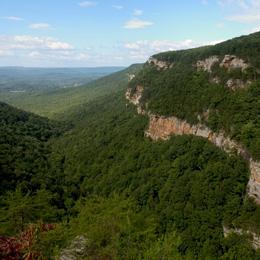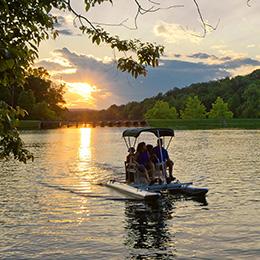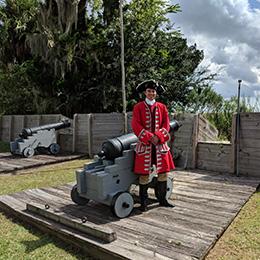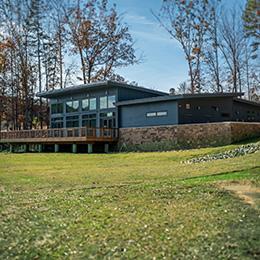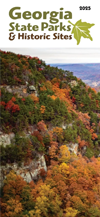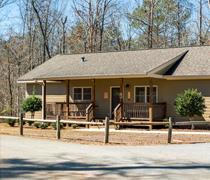Home to alligators, turtles and other wildlife, Magnolia Springs State Park offers an enchanting experience into the sights and sounds of nature with its crystal-clear blue spring, tangible reminders of its Civil War history, and exciting recreational adventures.
Beautiful Magnolia Springs State Park is known for its crystal clear springs flowing 7 million gallons per day. A boardwalk spans the cool water, allowing visitors to look for alligators, turtles and other wildlife near the springs. A small lake is available for fishing. Overnight guests can choose from cottages and a campground. Magnolia Springs State Park is part of the Muddy Spokes Club, encouraging bikers to finish a 3-mile loop and work toward earning a members-only t-shirt.
During the Civil War, this site was called Camp Lawton and served as “the world’s largest prison.” Today, little remains of the prison stockade; however, the earthen breastworks which guarded it may still be seen. During 2010, Georgia Southern University archeology teams uncovered the stockade wall and numerous personal articles from soldiers. Their discovery has been heralded as one of the most significant finds in recent history. Artifacts are currently on display at the university and at the Camp Lawton museum located at Magnolia Springs State Park.
Magnolia Springs State Park History
Magnolia Springs State Park encompasses over 1,000 acres between Perkins and Millen, Georgia. The park is named after, and built around, the crystal-clear spring water that flows through the area. During the Civil War, the area now encompassed by the park, was known as Camp Lawton.
Keep Reading Magnolia Springs State Park History.
Reservations, Accommodations & Facilities
- 1,070 Acres
- 9 Cottages
- 26 Tent, Trailer & RV Campsites
- 3 Walk-In Campsites
- 1 Pioneer Campground (Before making reservations, call park for capacity limits.)
- 1 Group Shelter (seats 100. Before making reservations, call park for capacity limits.)
- 9 Picnic Shelters (Before making reservations, call park for capacity limits.)
- Fishing Dock
- Boardwalk
- 2 Playgrounds
- Wi-Fi — available in the Visitor Center
- Natural Spring
Things To Do & See
- Biking - rentals available
- Boating
- Field Trips
- Fishing
- Hiking
- History Center
- Paddling - rentals available
- Picnicking
- Splashpad - seasonal
- Weddings - park approval required
- Archery - events only
- Geocaching at Georgia State Parks
- Muddy Spokes Club
Nearby Attractions
- George L. Smith State Park
- Georgia's Classic South
- Jack Hill State Park & Golf Course
- Hamburg State Park
- Augusta, GA
- Savannah, GA
- Di-Lane Plantation WMA
- Ohoopee Dunes WMA





